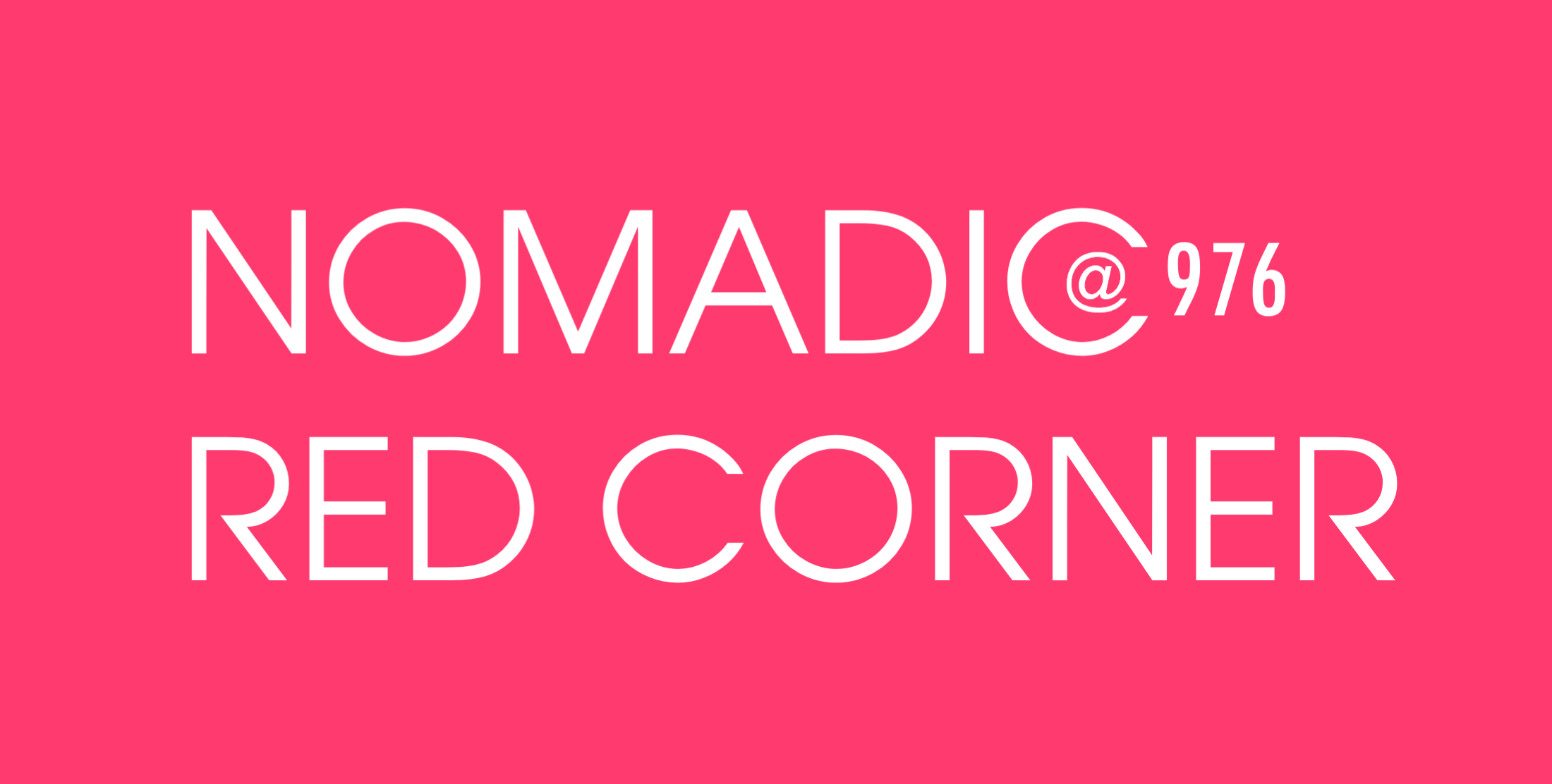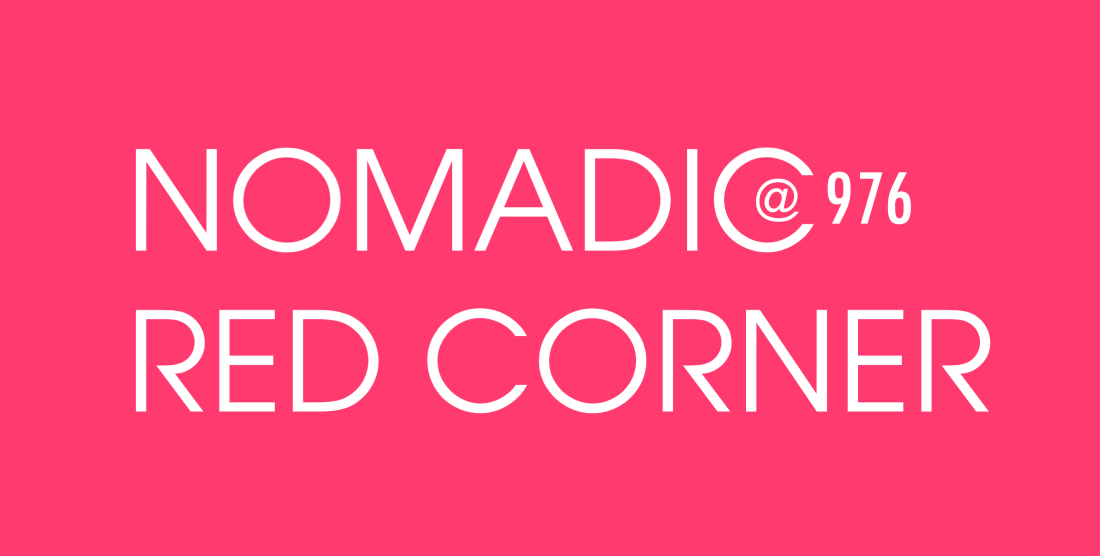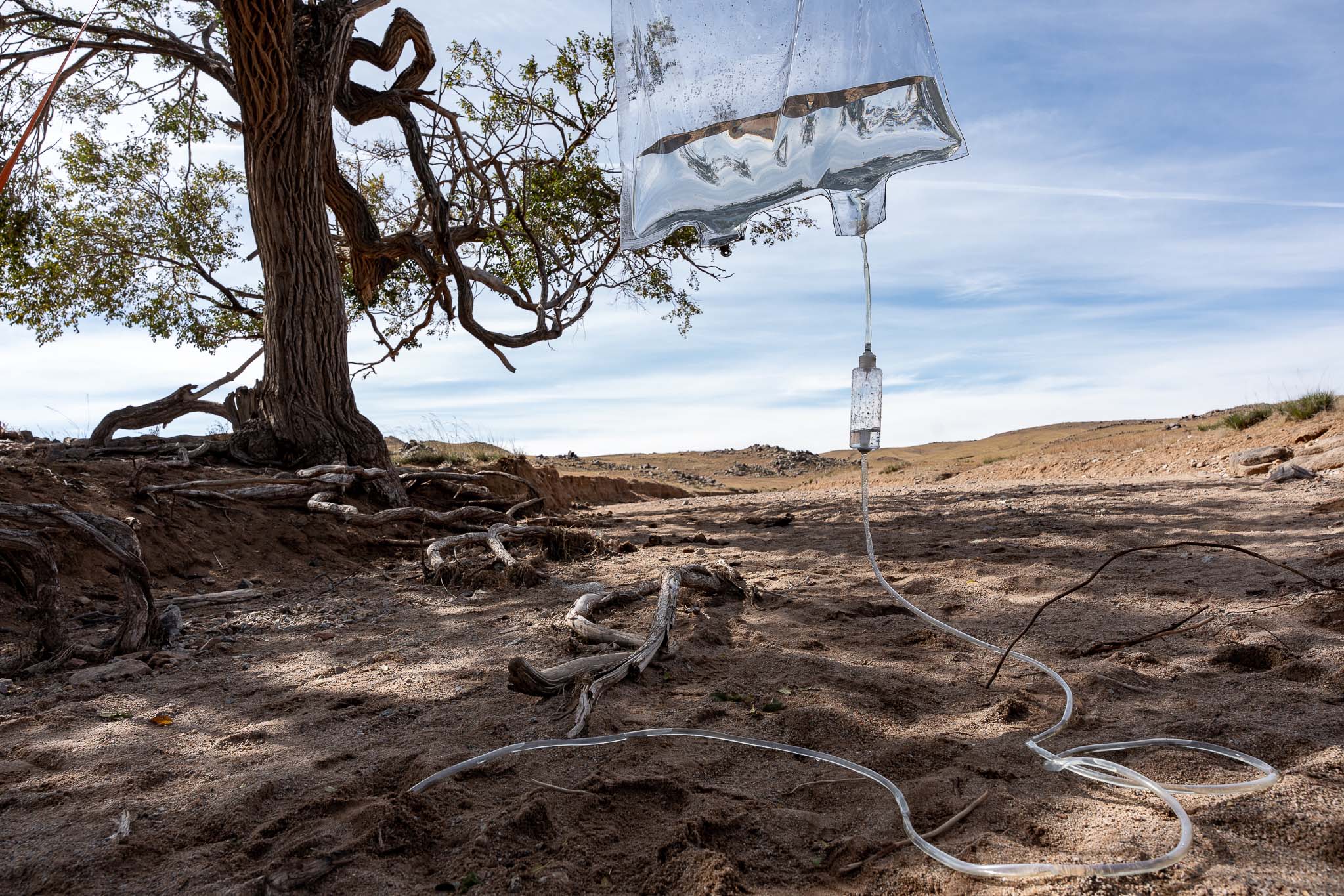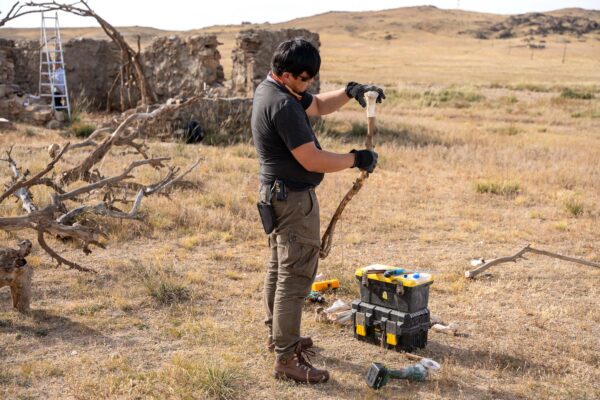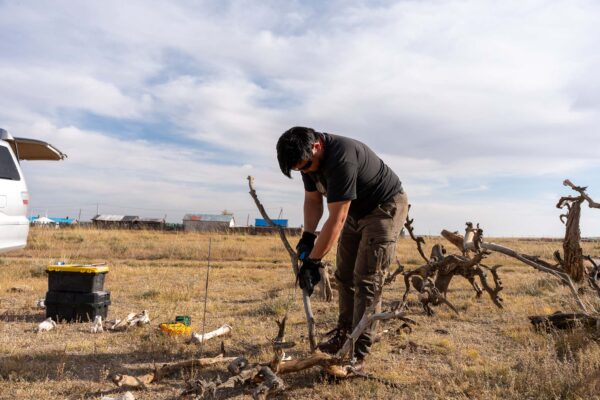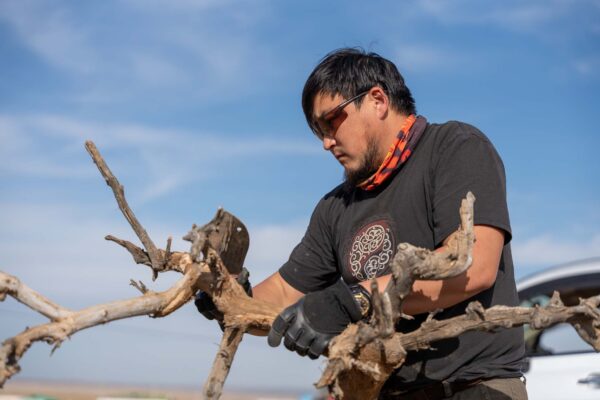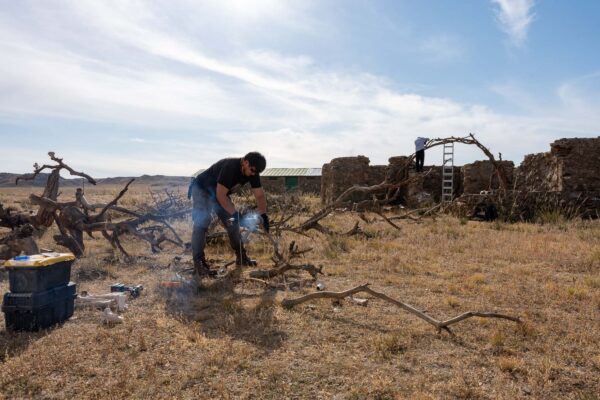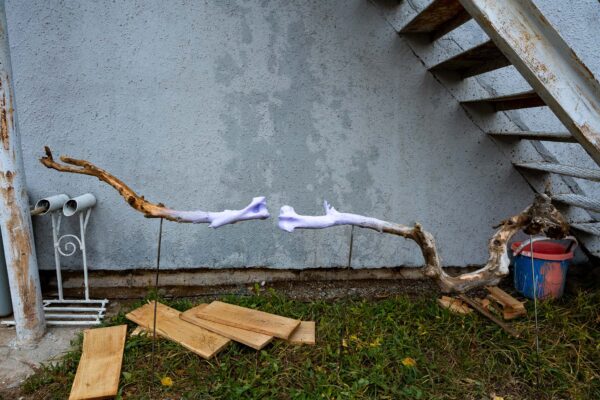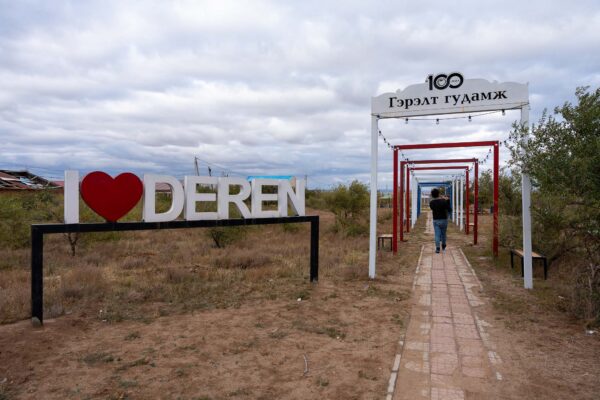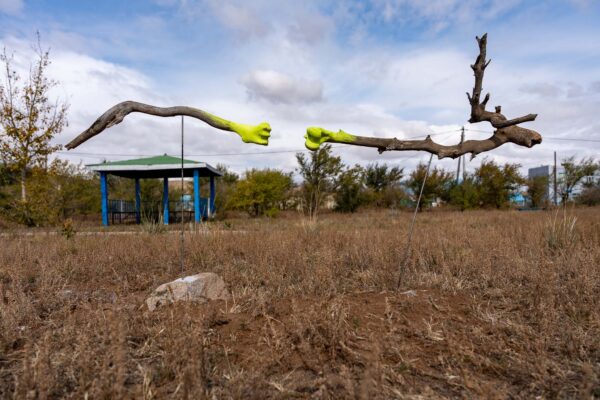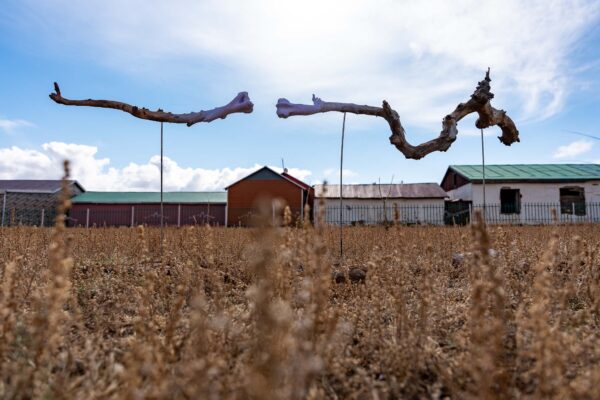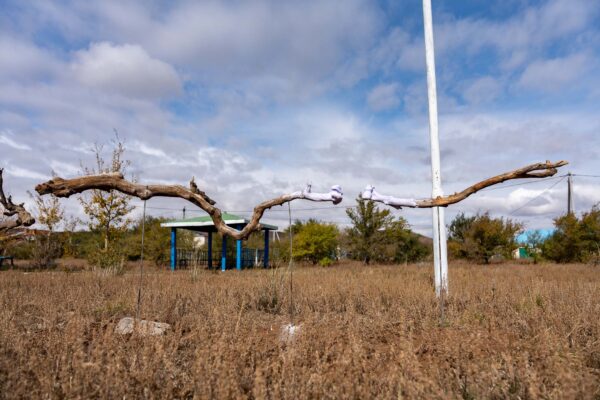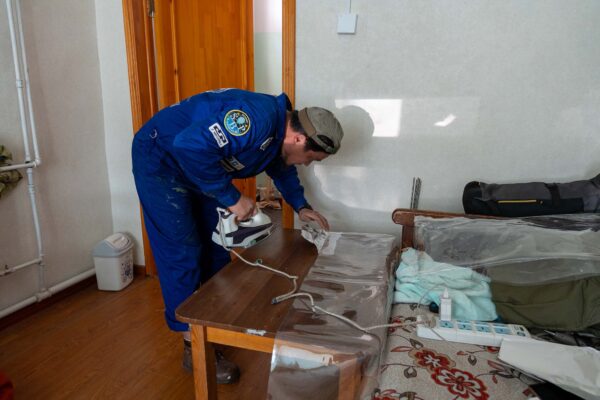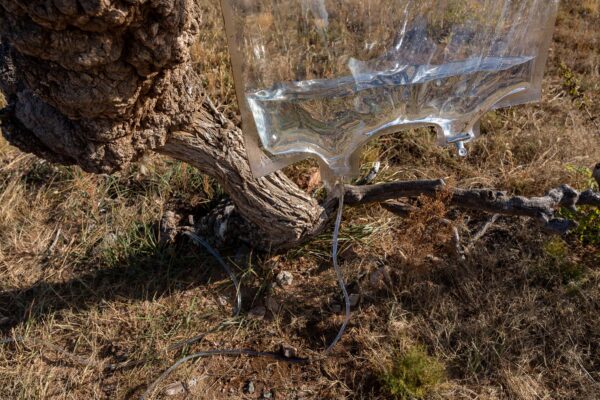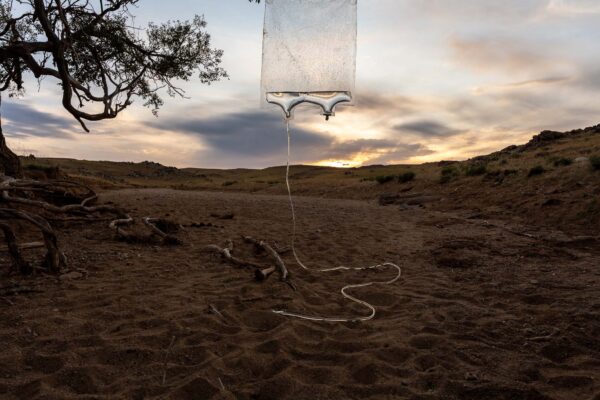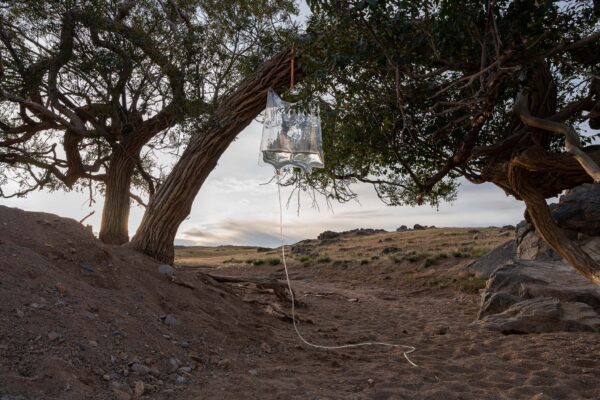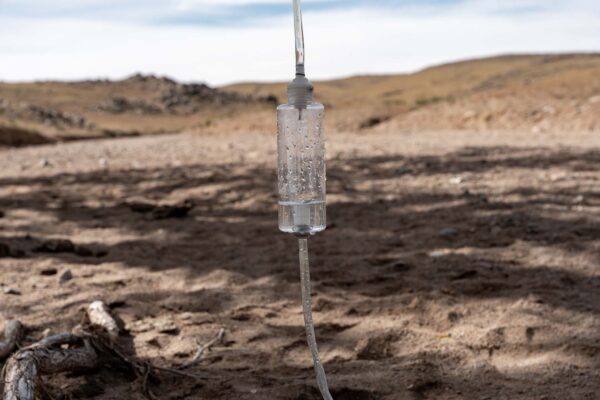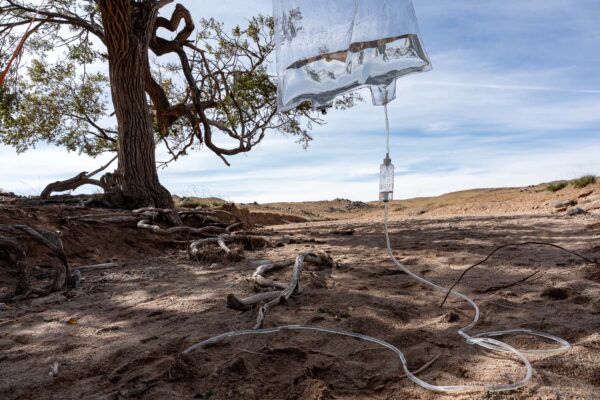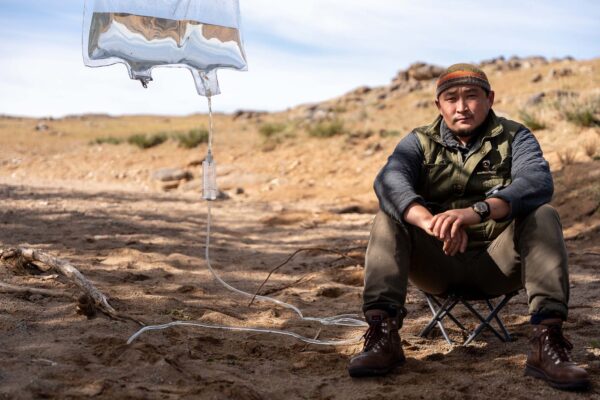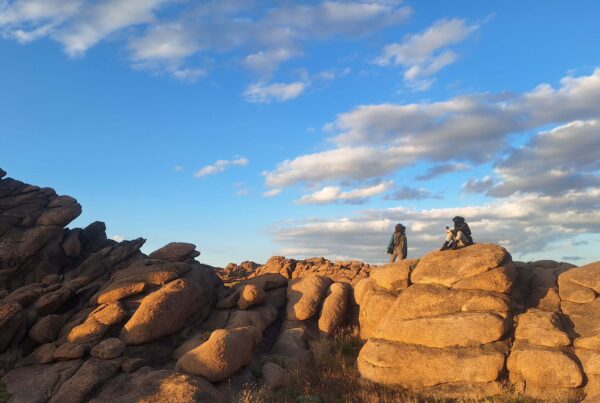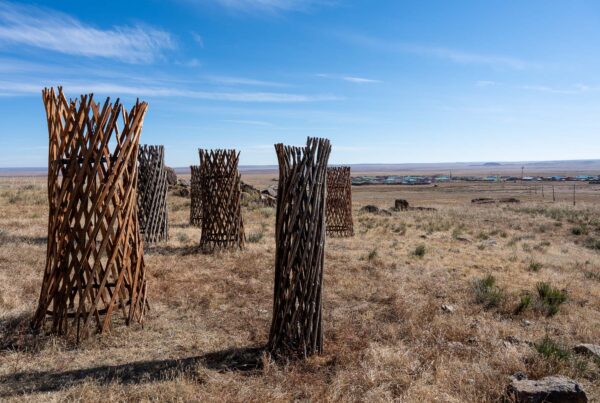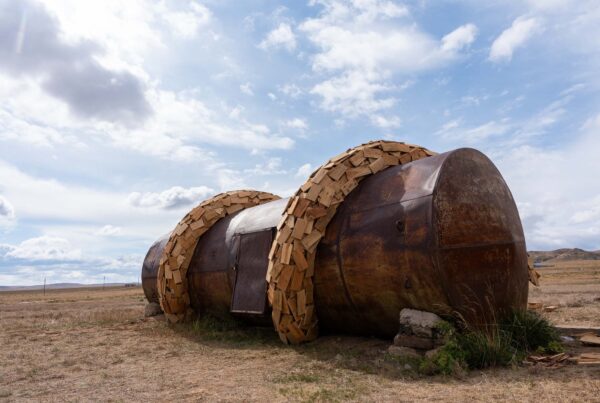Mongolian artist Tuvshinjargal Lkhaajav placed his abstract sculptures made of discarded wood and animal bones, reminiscent of lives lost, as well as a large-size drip system for watering trees in the park of Deren Soum, reflecting the need for water in Deren Soum area as a part of Nomad Spirit International Program held in Deren Soum of Dundgovi Province from September 21 to October 2, 2024.
Born in 1987, artist Tuvshinjargal studied ceramics and decorative art at the School of Fine Arts of the University of Arts and Culture of Mongolia under the guidance of well-known Mongolian sculptor Sereeter. His artistic practice includes ceramics, fiber glass and metal sculptures and outdoor installations. At the initial stage of his career, Tuvshinjargal created fiber glass and metal sculptures that are heavily influenced by figurative abstract art. His forms were usually abstractions of animal figures, mostly depicting horses and camels, as well as nomadic household items. Tuvshinjargal has been actively participating in annual exhibitions organized by Union of Mongolian Artists and various sculpture symposiums. He has also completed several commissioned works for the public areas of Ulaanbaatar city.
Funded by EUNIC, the Nomad Spirit – International Program was initiated by EUNIC Mongolia and its implementing members, the Alliance Française Oulan-Bator, the Austrian Embassy in Beijing, the Finnish Embassy in Beijing, and the Goethe-Institut Mongolia with the support of the EU Delegation to Mongolia with aim to raise public awareness of climate change through contemporary artistic practices, the program brought together over 260 participants, including 8 artists from 5 different countries, as well as local schoolchildren, residents, administrators, and visitors from Ulaanbaatar. The program was implemented by the Mongolian Contemporary Art Support Association and its affiliate Nomadic Red Corner International Residency and Deren Soum administration and secondary school.
*EUNIC — European Union National Institutes for Culture — is Europe’s network of national cultural institutes and organisations, with 39 members from all EU member states and associated countries. EUNIC Mongolia aims to develop strong and sustainable ties between cultural stakeholders in the European Union and Mongolia by engaging in activities that are driven by the global challenges we have to respond to together.
